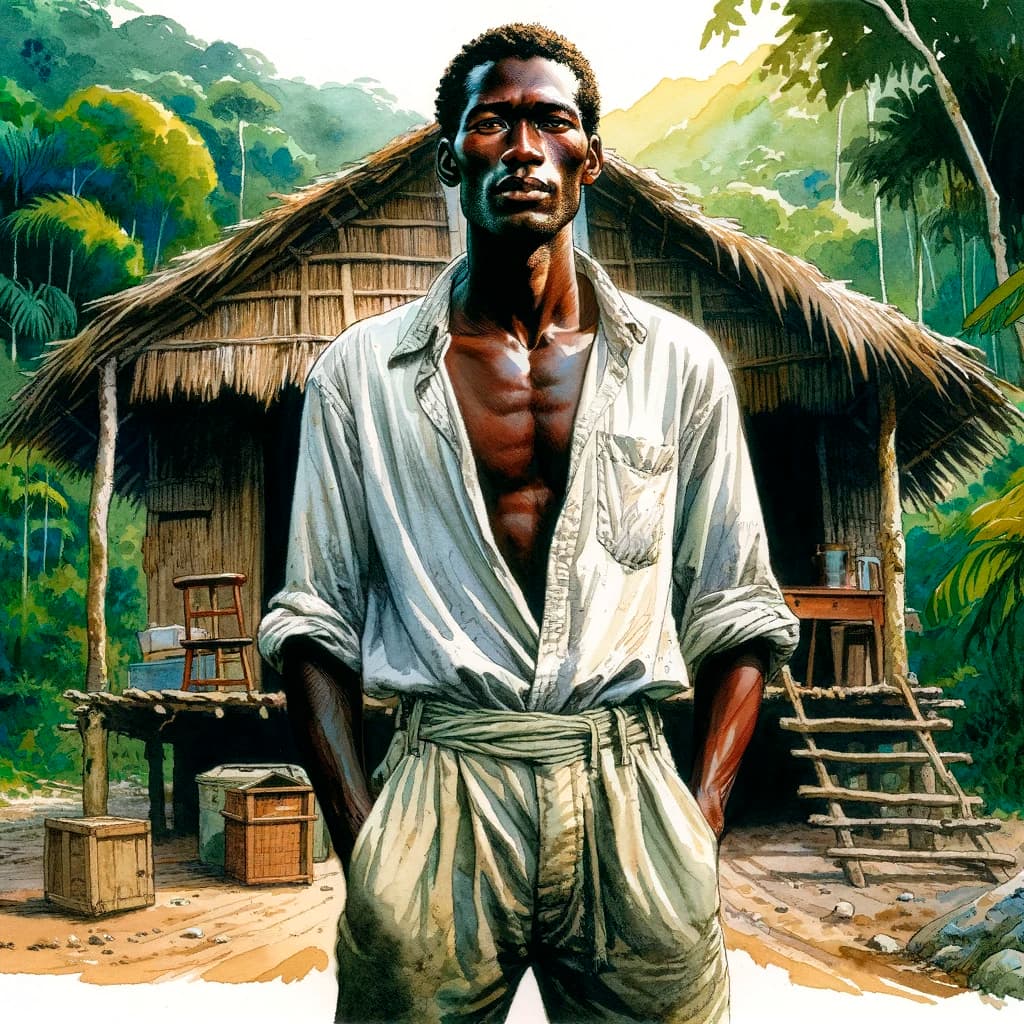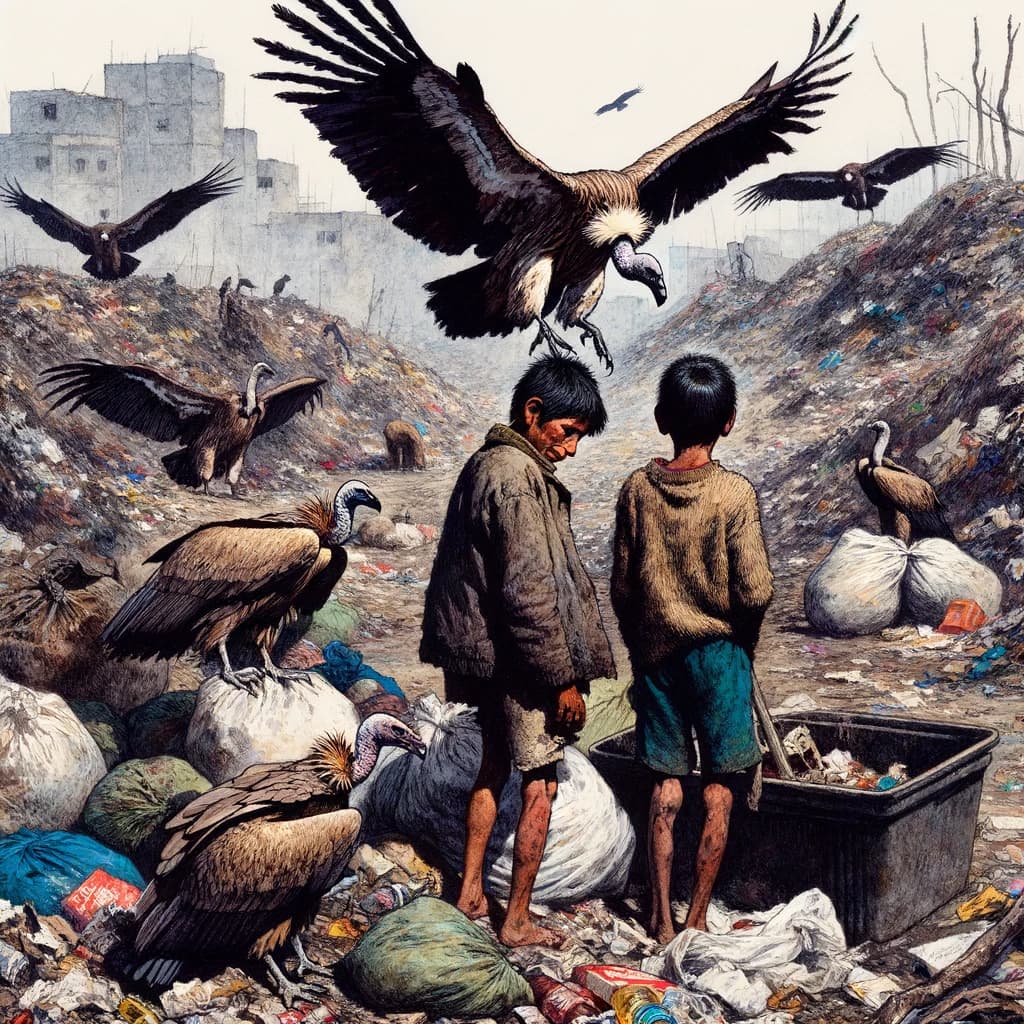Mario Vargas Llosa: A Visitor. Summary and analysis
In an isolated tambo between the desert and the jungle, Doña Merceditas, an older woman who lives alone, receives an unexpected and disturbing visit from an ex-convict named The Jamaican, who arrives with a sarcastic and threatening attitude. While he forces her to drink and subjects her to humiliation, it is revealed that he has returned to set a trap for Numa, a man close to the woman. In collusion with the police, The Jamaican turns Doña Merceditas into a decoy: he ties her up and places her in front of the Tambo to lure his target. When Numa arrives to rescue her, he is captured by the hidden agents. Believing he has done his part and expecting his reward, The Jamaican is cruelly abandoned by the Lieutenant and his patrol, who leave with Numa as their prisoner. Alone and surrounded by the latent threat of Numa’s accomplices who have been left free, The Jamaican faces an uncertain fate, while Doña Merceditas bursts into triumphant laughter.




